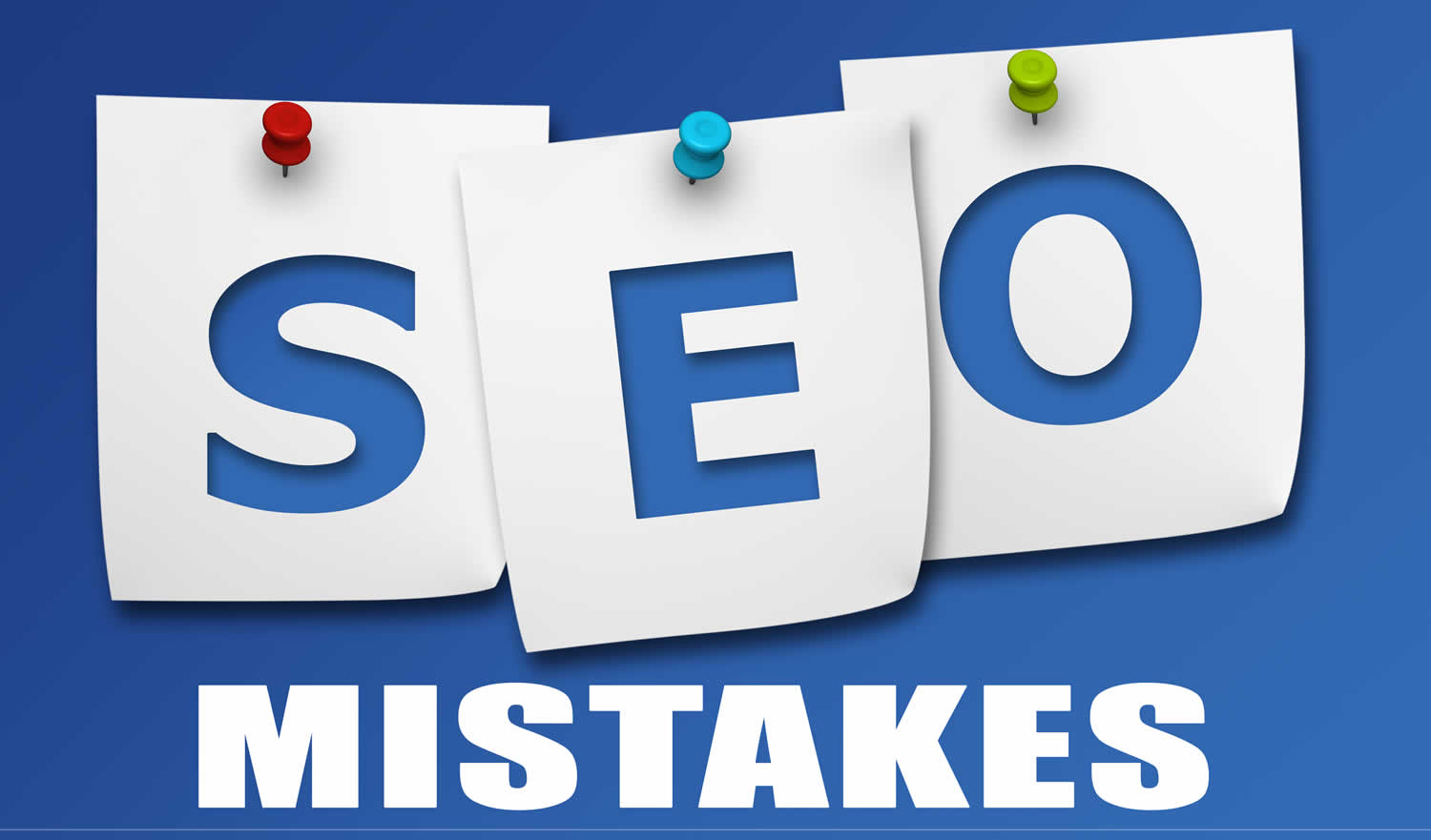Stay away from these common SEO mistakes

 I’ve encountered a lot of SEO mistakes in the course of doing this kind of work for so many different types of businesses. There is a common theme to most of these SEO mistakes: Shortcuts. Sometimes these SEO shortcuts are the result of unrealistically low SEO or website development budget. Sometimes they are the result of inexperienced website design or SEO work.
I’ve encountered a lot of SEO mistakes in the course of doing this kind of work for so many different types of businesses. There is a common theme to most of these SEO mistakes: Shortcuts. Sometimes these SEO shortcuts are the result of unrealistically low SEO or website development budget. Sometimes they are the result of inexperienced website design or SEO work.
In any case, as a decision-maker, you should be aware of them so your company doesn’t suffer the consequences. You will likely end up with lagging rankings, or worse, Google penalties for shoddy or ill-advised SEO work. Avoid these common SEO mistakes, and don’t take dangerous shortcuts that can ruin your rankings or keep you from making money online.
Free-For-All Link Farms
An FFA Link Farm is when links to your site are put in place with no human review or editing. In other words, some so-called SEO consultant submits your site to the link-farm, a robot approves it, and it’s automatically live for Google to “count.” Unfortunately, it can “count” against you, rather than for you. There are a lot of SEO myths about link farms and “bad neighborhoods,” but if you end up linked from a “bad neighborhood” like porn or gambling sites, this could really hurt your rankings. Don’t take chances with FFA Link Farms, and don’t hire SEO consultants who take these kinds of shortcuts.
Offshore SEO outsourcing
Don’t put your business performance and reputation into the hands of an offshore SEO firm. You don’t want your content written by a non-native speaker and writer, first of all. Your content is your reputation, and hiring writers with less than stellar language skills is a big turn-off to readers. The last thing you want to do is give shoddy companies free reign to ruin your rankings and reputation by posting grammatically incorrect content, most likely using unethical “blackhat SEO” strategies. These companies are largely designed for one reason: To separate you from your money and move on. Instead, trust an experienced SEO firm with a team of experienced, U.S. educated content creators.
Hidden keywords on the page
It does not help you to have hidden keywords on your site. Ever. All content should be visible, except in cases where text can be hidden/unhidden by the user to increase user interaction with your content. Lists of keywords buried in the page, or blended into the background color of the page are useless for SEO. Besides, these are just unethical attempts to get rankings for keywords that have no useful content built around them. Don’t do it. Make all text content useful, relevant, and visible to both your end users and the search engines.
Keyword stuffing
Keyword stuffing is a common SEO mistake, similar to hiding words on the page. Keyword stuffing in the meta tags is a newbie error. It has absolutely no benefit to your rankings, and Google could conceivably penalize you for it. There’s no upside, so don’t do it. All keywords used in your pages should be for the purpose of useful content and navigation, nothing more. That content should be written by a professional in your area expertise, or an SEO copywriter who can make sure your targeted keywords are neither over- nor under-represented in your copy.
Sitewide titles and meta tags
Google’s index is like a recipe card index. If you named all of your recipes “Recipes” or “Desserts” you wouldn’t be able to find a specific type of recipe when you needed it. The uniqueness and relevance of each page’s title and content is absolutely essential to doing expert SEO work. Whatever you do, make sure you don’t use site-wide titles and meta tags. Make every title, every heading tag, and every meta tag relevant and unique to the content that is represented on that page. Then, and only then, can Google accurately index your pages and know what types of subjects they’ll be useful for when searchers are looking for them. Don’t make this rookie SEO mistake.
Cloaking
Cloaking is a big SEO mistake and consists of making your page look one way for search engines, and another way for humans. Don’t do any type of cloaking, ever. All the content that you write for the benefit of search engines should be visible to humans and vice versa. More accurately, you should write for humans and make sure it’s useful for search engines as well.
Note: Rewriting the URL to be search engine friendly (for instance, to make your content management system search engine friendly) is not cloaking. Cloaking involves deceiving the search engines about what’s actually on the page.
Automated SEO Schemes
Again, this comes back to SEO shortcuts. It’s a mistake to take automated shortcuts that can cost you rankings. There is no such thing as an automated, set-it-and-forget-it SEO strategy. All SEO requires human intervention, thinking, and decision-making. You can, of course, use technology to make life easier, reduce the time spent on certain repetitive tasks, etc. But you will never make it to #1 for competitive keywords using shortcuts. In fact, this is probably the most common SEO mistake webmasters make.
Instead of throwing money at short-sighted SEO shortcuts that will inevitably be a mistake, it’s much wiser to invest in quality SEO work done by a reputable SEO company. With SEO experts on the job, not fly-by-night SEO outsourcing companies, you should see many happy returns of your investment dollars.

 [caldera_form id="CF5b2a38849abd5"]
[caldera_form id="CF5b2a38849abd5"]